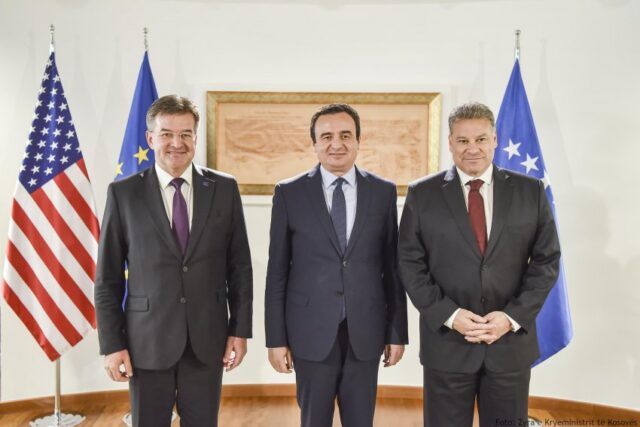Reposted from the original: https://www.peacefare.net/2023/02/15/ugly-diplomacy-in-the-balkans/
Today’s Serbia National Day message from the State Department includes this tidbit:
I am pleased our two countries recently signed a Memorandum of Understanding to create liaison positions for Serbian diplomats within the U.S. Department of State. This unique program will not only foster a better understanding of our respective foreign policy goals and objectives but will forge new channels of communication and build lasting partnerships.
This comes after avowal of support for Serbia’s EU ambitions and the umpteenth plea for Serbia to support Ukraine.
Where this leads
Serbia is not an allied country. It is not a member of NATO or a major non-NATO ally and has a policy of military neutrality. It has not joined the Western sanctions against Russia for its aggression against Ukraine. In fact, Belgrade is largely out of alignment with EU foreign policies it has promised to respect.
But the State Department has decided it can “win over” Belgrade. It is doing so by providing goodies up front. State is supporting Belgrade’s “Open Balkans” initiative, which aims at removing border barriers between Serbia and Serb populations in neighboring countries. State is also supporting Belgrade’s effort proposal to separate governance of the Serb-majority population of Kosova from Prishtina’s authority through creation of an Association of Serb-majority Municipalities.
That will create another de facto “Republika Srpska.” Bosnia’s Republika Srpska is now preparing to refuse the authority of Sarajevo’s courts. We can expect the same in Kosova, if the Association is formed with the executive powers Belgrade seeks.
Ugly diplomacy
There is, sadly, more to the illogic of what the Americans are doing. Washington says it is supporting the EU-sponsored dialogue between Belgrade and Prishtina. That aims at “normalization” of their relations. Having Serbian foreign service officers in the State Department while the dialogue proceeds will arouse understandable suspicions in Kosova.
Such liaison officers learn a great deal about the inner workings of US diplomacy. Even if assigned to roles far from the European Bureau, the signal Washington is sending is clear: we favor Serbia’s perspective in the dialogue. The only way to make this move palatable is to offer the same to Kosova in two days time, when it is Kosova national day.
The heavy lean of the Americans toward Belgrade is ugly diplomacy. It favors the less friendly party while making the more friendly party uncomfortable. Washington expects its favors to Belgrade returned in some indefinite future, while demanding Prishtina agree to Open Balkans and the Association right now. It won’t be hard for Belgrade to agree to “normalization” that includes validation of Serbia’s authority over the Kosova Serb population. Once that is done, Serbia will expect the analog in Bosnia and Montenegro.
What Washington isn’t doing is delivering what Kosova wants: Serbian recognition and membership in the United Nations. “Normalization” could come to mean international recognition for the Association of Serb-majority Municipalities but not for Kosova’s sovereignty and territorial integrity. It is hard to imagine a worse outcome for Prishtina.
